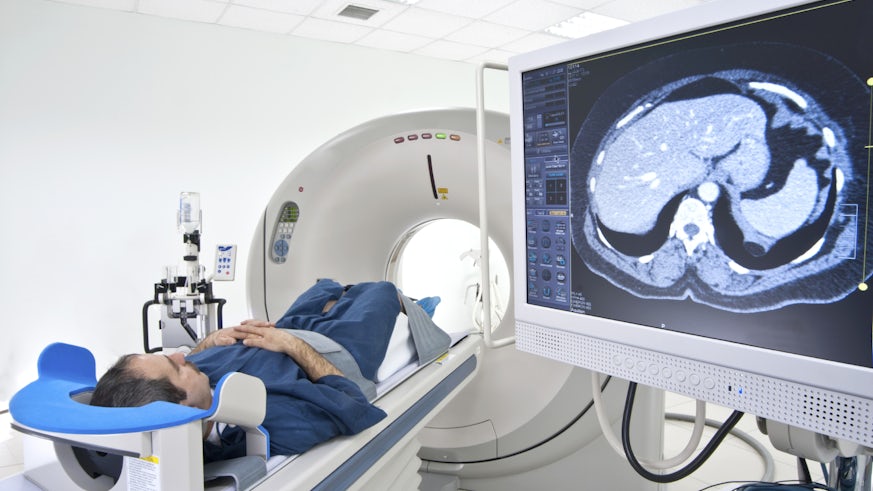Award for new tumour mapping process
10 September 2015

University researcher recognised for innovative approach to improve radiation treatment for cancer patients
A University researcher has been given a prestigious award for her pioneering work on the production of a computer algorithm to precisely pinpoint the location and size of cancerous tumours in the human body.
Dr Beatrice Berthon, from the School of Medicine, has been awarded the ‘Manufacturers' Award for Innovation’ from the Institute of Physics and Engineering in Medicine (IPEM) for her part in developing Automatic decision Tree Learning Algorithm for Advanced Segmentation (ATLAAS).
ATLAAS has been developed to optimise cancer therapy by allowing clinicians to more accurately target tumors with radiation, whilst sparing the surrounding healthy organs. The method works by training a computer to automatically identify regions of high metabolic activity in cancer tissues, which have been scanned using Positron Emission Tomography (PET).
By allowing a computer to automatically detect the cancerous regions of tissue and reconstruct the actual volume of the tumour, ATLAAS removes the need for a large number of scans to be manually analysed by clinicians, which can be time consuming and is also prone to inter-observer variability.
ATLAAS is the result of a four-year project carried out by Cardiff University researchers and Velindre NHS trust, and funded as part of the POSITIVE project through two consecutive grants from Cancer Research Wales (CRW).
Dr Berthon said: “I am thrilled to have been awarded this prize, and very grateful to the IPEM for the recognition of our work. It has been a great opportunity to work on this project, thanks to Cancer Research Wales and all the colleagues involved, and it is fantastic to see the interest that it has triggered. I am very proud of this achievement and hope that it can be translated into many future applications benefitting patients.”
Dr Emiliano Spezi, from the School of Engineering and chief investigator in the POSITIVE project said: “This is an important national recognition for truly innovative research in cancer imaging made in Wales. I congratulate with Dr Berthon for this well-deserved award, with our co-investigators Dr Chris Marshall (PETIC, Cardiff University School of Medicine) and Dr Mererid Evans (Velindre Cancer Centre), and all teams involved in both academic and clinical environments”.
Dr Lee Campbell, Science and Communications Manager at Cancer Research Wales, who funded the study, said: “Cancer Research Wales is very proud to be associated with this cutting-edge science and we would like to congratulate all the scientists and clinicians involved in this ground-breaking study. The development of clinically applicable technology to better target invasive and even hidden tumours, with radiotherapy, exploiting the cancer’s very own biology, is a major advancement in the field.”
Dr Tom Crosby, Consultant Clinical Oncologist, Clinical Lead for Radiotherapy in Velindre Cancer Centre and Medical Director of the South Wales Cancer Network, said: “To win this prestigious award is a fantastic achievement for the team from Cardiff University and Velindre Cancer Centre. We expect radiotherapy to play an increasing role in curative treatment of cancer and recent computer technology has transformed this treatment, especially for patients with head and neck cancers, by targeting the tumour much more precisely and sparing the serious side effects of treating normal tissues.”
Find out more about postgraduate research opportunities in our School of Medicine.
